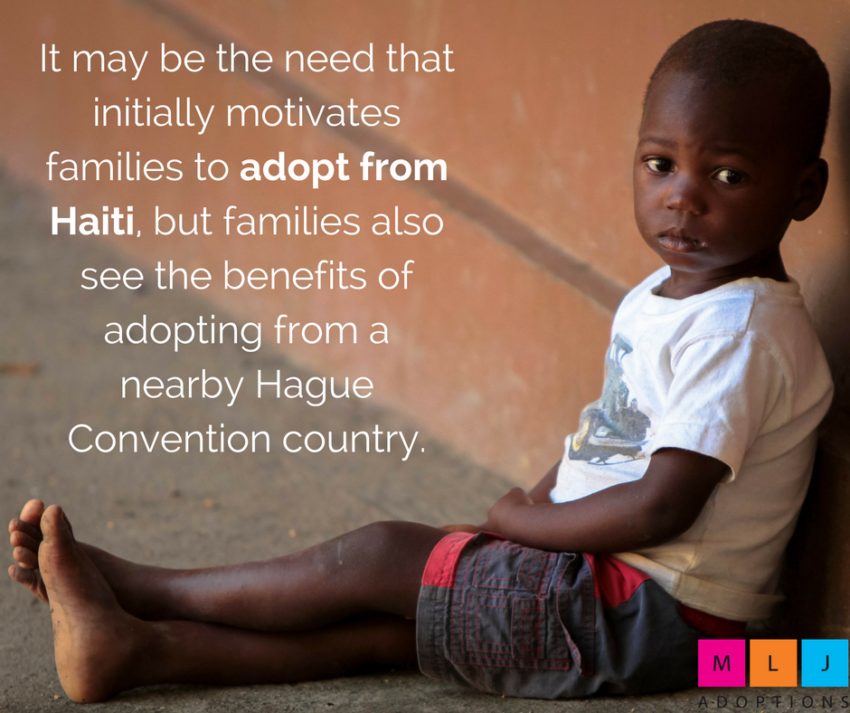 When considering which country best suits your family for international adoption, there are several factors to consider.
When considering which country best suits your family for international adoption, there are several factors to consider.
Is your family eligible to adopt from that country? If you don’t qualify now (due to your age or the length of your marriage,) are you willing to wait?
What age children are legally free for international adoption from that country?
What types of additional medical or support services are your family able to provide?
What is the most important need your family wants to meet? Is it poverty? Adopting an older child? Do you want to begin a lifelong commitment to give back to a specific country?
Once you start to answer some of these important questions, it’s helpful to examine which countries could be good fits. Below we discuss several reasons why you may want to consider adopting from Haiti.
Overwhelming Need
In 2010, an earthquake devastated Haiti. The impoverished country had seen natural disasters before, but this one captivated the Western world like never before. Over a million people were displaced, and at least 160,000 lives were lost. International adoption doesn’t prevent or fix natural disasters, but in the aftermath of earthquakes, hurricanes and other acts of nature, children are even more vulnerable. But what the world could no longer ignore in January of 2010 was the poverty of a country.
It’s the poverty of Haiti that draws families to explore international adoption. When they hear the stories of children growing old in orphanages, children who lost parents and entire families in the earthquake, and children dying from preventable diseases, they cannot ignore the need, and are moved to meet it through international adoption.
Proximity
It may be the need that initially motivates families to adopt from Haiti, but families also see the benefits of adopting from a nearby country. Travel to Haiti is easier than travel to Africa, though the need is very similar.
While geographical proximity is a benefit during the adoption process because of the travel requirements, it can play a larger role long term. Families who adopt internationally often desire to maintain a connection to their child’s birth country. This is a very realistic option for families who adopt from Haiti, with easy travel and many humanitarian and mission partnerships with U.S. churches and organizations.
Hague Convention Country
In April 2014, Haiti joined the Hague Convention. This brought many changes to the adoption process in Haiti. These changes include a central authority who matches children with families, licensing and oversight of orphanages or crèches in the country, required birth parent education before a child can become legally free for adoption, and increased medical and social information available to adoptive families at the time of referral. It did take time to implement these changes and for the benefits to be seen, but since the beginning of 2014, there is greater transparency in adoption from Haiti.
These changes, while difficult and sometimes bureaucratic, benefit birth families, the adopted child, and adoptive families. It is not uncommon for countries with great poverty to experience ethical complexities that may not exist in other places. The Hague Convention helps to safeguard all parties from such complexities, even when it may be impossible to completely remove the risks of adoption and working in impoverished nations.
No child is more or less worthy of a family. While there are many reasons families consider adopting from Haiti, Haitian children are just as worthy of a family as children born in America, in Bulgaria, in Mexico, in Ethiopia, in China, in India or any other country in the world. Identify what matters most to your family and what is a good fit; then make a decision.

If you’re interested in learning more about adopting from Haiti, contact us.
Photo Credit: Feed My Starving Children
